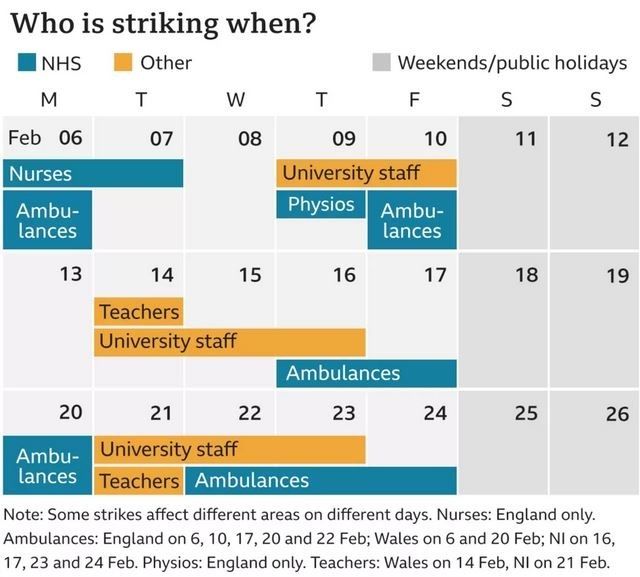
How the nurses' strike on Tuesday 7 February will affect you
While ambulance workers are back at work, nurses remain on the picket line. The industrial action by the Royal College of Nursing (RCN) affects 73 NHS trusts in England, which is which is just over a third of the total.
The government says that the NHS strikes so far have led to 88,000 appointments and operations being cancelled in England.
But the advice remains the same: assume your appointment is going ahead if you haven't been contacted.
Nurses' strike
Members of the Royal College of Nursing (RCN) are continuing their walkout over pay in England on Tuesday.
A full list of the trusts affected is available on the RCN's website.
If you have a hospital appointment in England you should still go, unless told otherwise, according to the NHS.
Patients in hospital will be informed how their care will be affected on a ward-by-ward basis.
Intensive and emergency care will still be provided, but routine check-ups and other operations may be affected.
Services such as chemotherapy, kidney dialysis and intensive care will be staffed, as part of emergency cover.
The biggest disruption is likely to be in pre-booked treatment such as hernia repair, hip replacements or outpatient clinics.
GP practices will run as normal, and people should go to scheduled appointments.
NHS medical director Sir Stephen Powis has said it is "vital that people do not put off seeking care and come forward for treatment".
Anyone who is seriously ill or injured should still call 999, or call 111 for non-life threatening care.
The nurses strikes on each day will last for 12 hours.
Remember the action is only in England. Welsh NHS staff suspended their planned strike action following an improved offer from ministers.
And the RCN and GMB unions in Scotland have put strike action on hold to allow talks on a 2023 pay offer.











